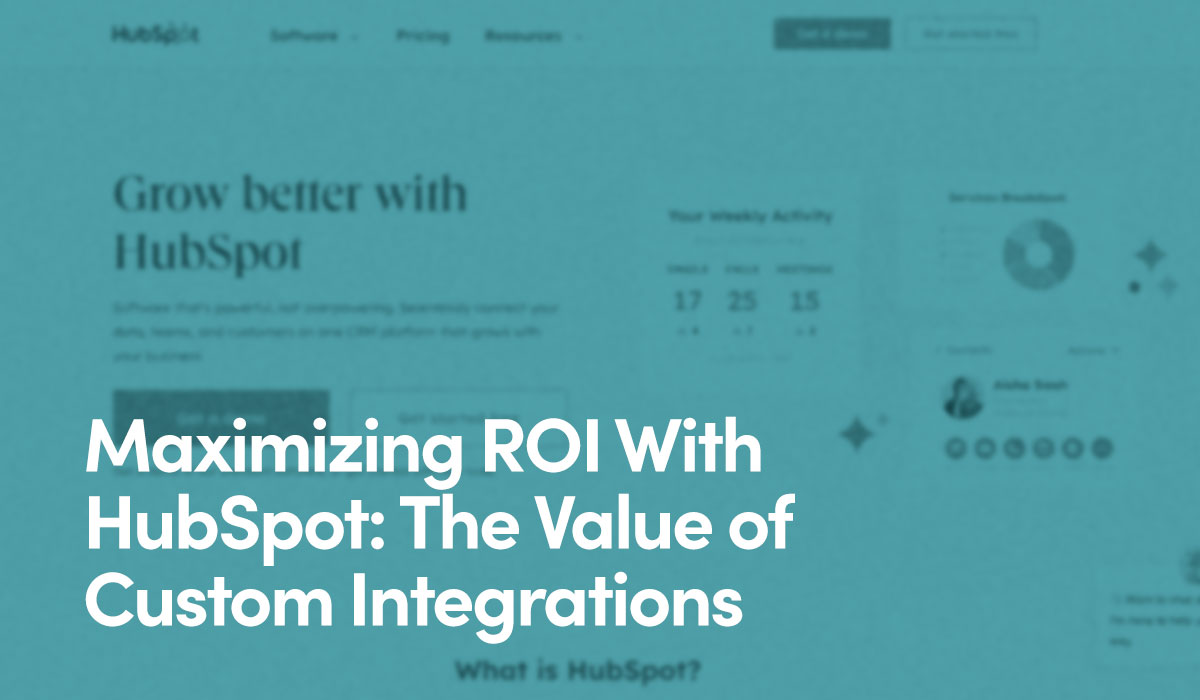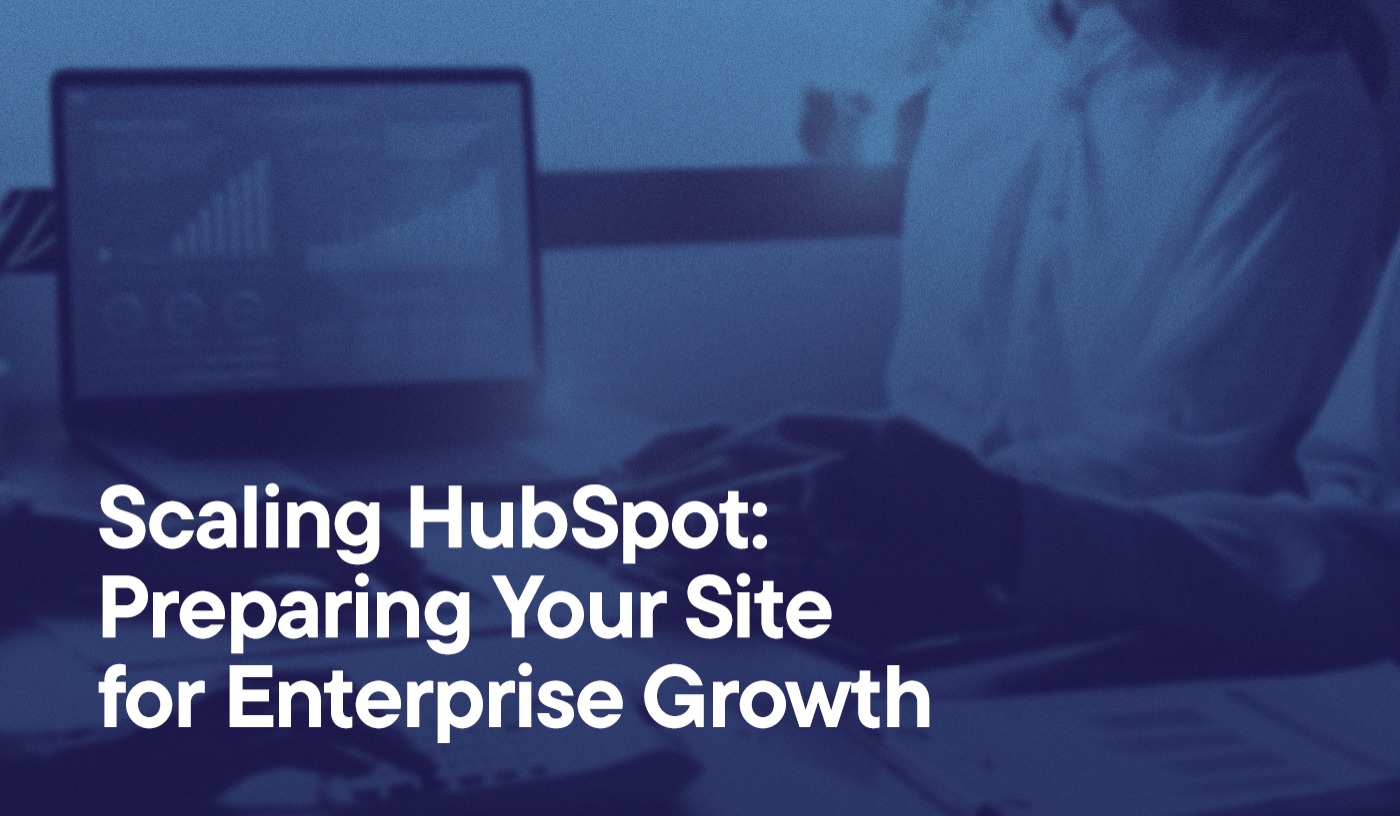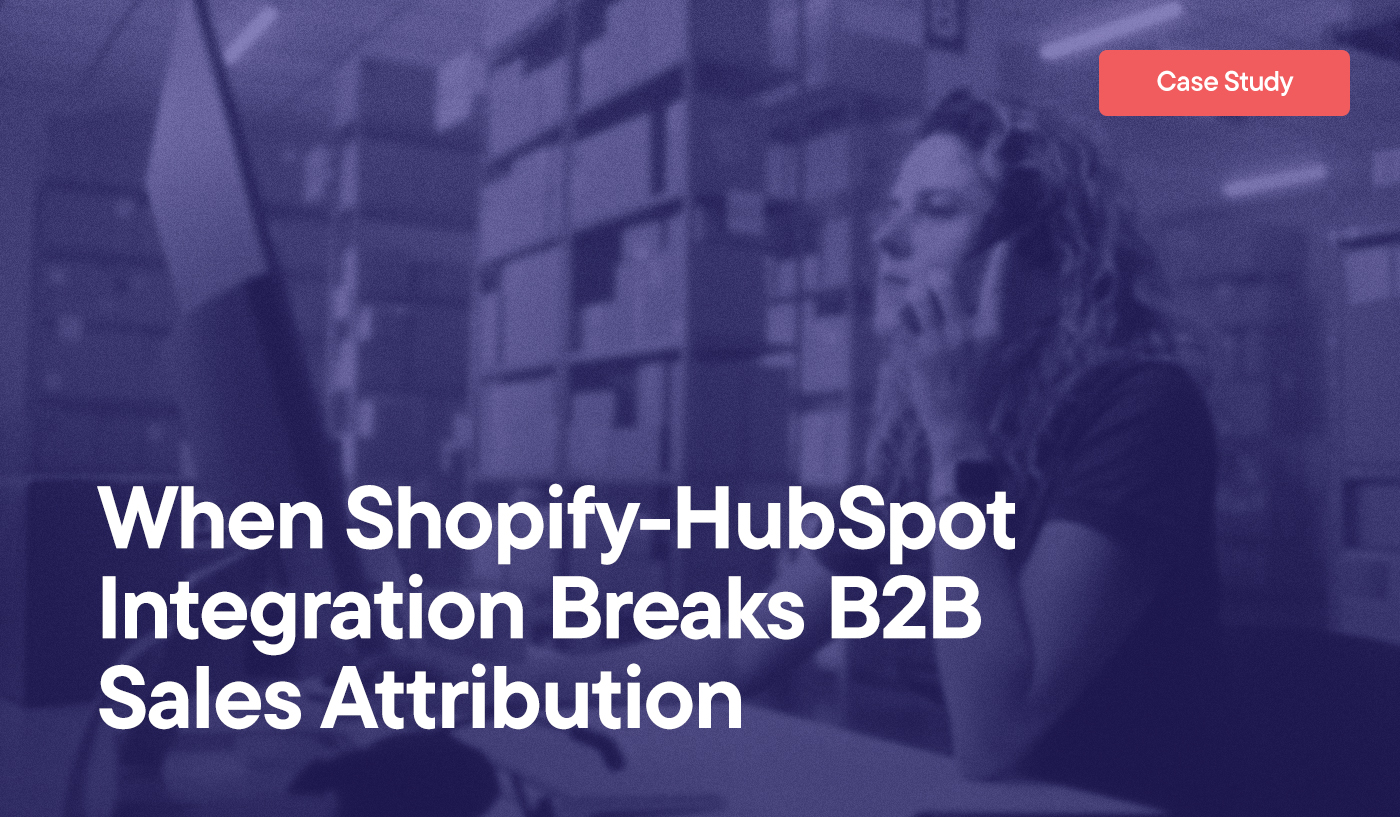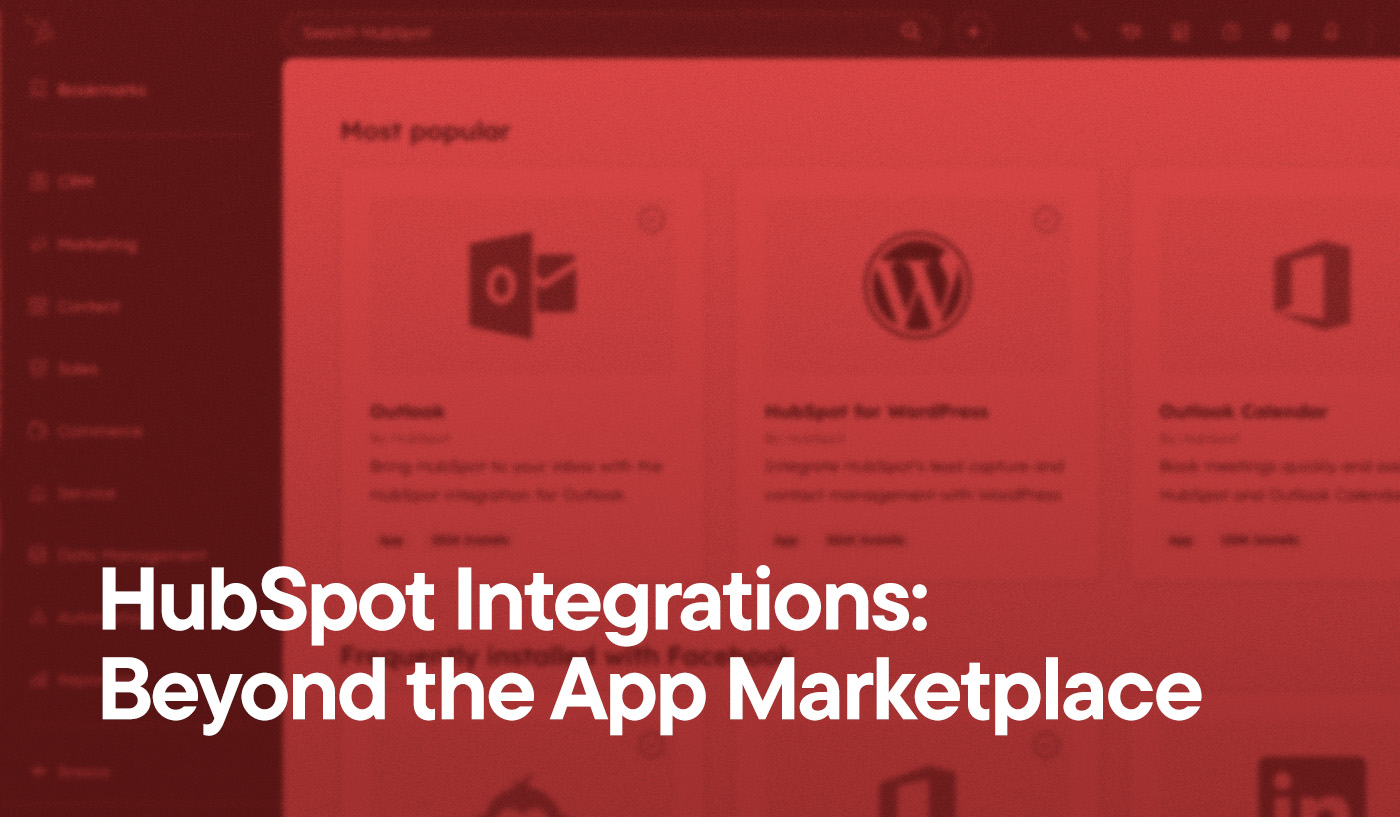Maintaining flexibility is essential for businesses operating in our modern world. With a growing universe of marketing and sales tools and mounds of data that need to be analyzed and synchronized, custom integrations can help streamline and supercharge operations.
Among the CRMs most effective at leveraging custom integrations is HubSpot.
Developers can construct solutions to improve data synchronization, create greater automation, and produce better deal tracking. It also helps that HubSpot provides developers with APIs (Application Programming Interfaces) to make it easier for them to create integrations that are unique to their needs.
If you're looking to get the most value out of the HubSpot CRM and maximize return on investment (ROI), custom integrations are one of the most effective ways to get there.
From Salesforce and the Google Suite to Shopify and Zapier, HubSpot conveniently facilitates integrations.
In practice, this means data and other critical information are consolidated and more easily accessible. While those integrations are indispensable for your organization, the custom variety, such as grabbing data from external platforms or linking a non-native e-commerce platform to HubSpot, can drive even greater efficiencies and open up new opportunities for your business.
To fully realize the benefits of HubSpot’s integration capacities, you’ll have to identify specific solutions and create realistic goals and objectives by examining current workflows and pain points.
Let’s examine how you can get the most out of the HubSpot CRM through custom integrations.
Streamlining Operations With Custom Integrations
HubSpot is well suited for custom integrations.
But the extent to which you can benefit from HubSpot’s custom integrations will likely depend on the experience level of your developers. Since the company provides developers with access to APIs and other tools, you’ll want to work with an organization or developer with deep knowledge of the HubSpot CRM and other software tools.
And it can be the right route for you if your organization is after a cost-effective, à la carte solution where you can more easily monitor team tasks and manage data entry.
Enhancing Task Management & Workflows
Creating connections between the disparate systems of your business can prevent tasks from falling through the cracks.
For instance, if your team receives an email requesting tech support, you can construct an integration that immediately logs all these emails as service tickets in HubSpot.
Just imagine aggregating all these weedy tasks into a single location for your team members to seamlessly tackle, without worrying whether anything will get lost in the shuffle.
Improving Data Entry & Synchronization
By leveraging custom integrations, your team can better control your data, including when and how it enters HubSpot.
For example, you may have sensitive information stored in a third-party system that doesn't need to enter HubSpot until it meets specific criteria. With custom integrations, you can trigger this to sync only when appropriate, keeping your data ironclad and records spotless.
Navigating Compliance Challenges & Protecting Sensitive Data
While HubSpot can be a fantastic tool for storing information, some sensitive client information, such as patient health information, may need to be kept in a separate system.
Custom integrations offers a solution: By using an external forms tool, you can choose to collect all the information you deem necessary. From there, you can determine which system it gets sent to and how it’s stored. This enables your team to remain legally compliant, while still meeting your clients’ and team members’ needs.
Increasing Efficiency by Integrating Existing Tools
It may appear that your team is already in possession of the necessary tools to accomplish their tasks, but there are occasions when they don't communicate correctly. You can either go through the time-consuming process of researching, investing, installing and bringing team members up to speed on a new set of tools, or you can build custom integrations that allow you to keep using the ones you're familiar with. The latter solution saves a considerable amount of time and increases efficiencies internally.
À la Carte Solutions
This may be the most apparent benefit, but it’s worth dissecting anyway. There are plenty of instances in which a third-party system will have its own proprietary integrations, and access to these tools can become costly—not to mention the inconvenience of not having a form-fit solution.
Again, this is where you can leverage custom integrations and à la carte solutions to tailor your specific budget and data needs.
Connect Multiple Platforms Seamlessly
Is a HubSpot Integration Right for Your Business?
Explore Custom Integration Solutions arrow_forwardOvercoming Challenges of Custom Integrations
As with anything, custom integrations aren’t without their complications—but resolving them is easier when you have the right people building them. For example, custom integrations work best when they're maintained appropriately and updated. If the biggest issue is related to personnel or the agency managing your CRM, any challenges can be minimized by working with an experienced HubSpot partner agency.
APIs Aren’t Always Available
Since custom integrations are unique to each and every business, a certain level of expertise is necessary to ensure they operate as you intended, as is the case when APIs are not available.
“When making connections between apps, developers use APIs to retrieve and send data,” explains Zachary Lyons, a HubSpot integrations developer at Hypha HubSpot Development. “If the application you are trying to connect with does not provide an API, the process can become cumbersome. However, you can still explore other integration approaches like screen scraping and file import/export.”
Staying on Top of Maintenance & Updates
Customizing your ecosystem means you’re responsible for keeping integrations up to date. In other words, you can’t always turn to an outside entity to keep all the gears primed or repaired. That falls squarely on you.
Imagine your team is adding a new product or service, or expanding into previously uncharted territory. When these updates occur, you will also need to apply them on the back end of your integration to keep all data flowing properly.
As with having a family car that you don’t want to take to the shop for repairs, you will need to have an expert on hand who can perform the job. This is where having access to a knowledgeable, in-house specialist will be key. Experienced developers have the skills to ensure your integration is professionally maintained and running clean.
Importance of an Experienced Integration Specialist
Consultation with an experienced integrations team can mitigate any potential issues.
A competent consultant will review the stack of tools your organization uses and make recommendations to reduce costs, prevent redundancies, improve user experience, and build a robust solution that will help your business flourish.
Driving the car analogy a bit further, a custom integration will need maintenance or a tuneup from time to time. And, on occasion, those repairs may extend beyond your capabilities.
This is where having the right solutions partner on your team can be invaluable. By choosing a HubSpot-approved solutions partner from its Partners Directory, you can ensure you're hiring a qualified technician who can get the job done!
Maximizing ROI Through Comprehensive Project Planning
Comprehensive project planning with an experienced HubSpot solutions partner can give you the insight you need to determine whether a custom integration is right for your team.
Building a custom integration solution might not be the right call if an alternative software has the built-in integrations you need. On the other hand, if you already have the necessary in-house tools, implementing a custom integration may be the best path to success.
Similar to a home appraisal, knowing the true value of your investment can help you make the right decision. By assessing the real worth of your investment, you can choose where to redirect your saved energy and time.
“For instance,” explains Kevin Campbell, a HubSpot platform specialist at Hypha HubSpot Development, “some organizations end up hiring a new team member to ensure data is properly checked and formatted before manually importing it into their CRM.
“This means investing salary, benefits, and a significant amount of resources into onboarding and training. Personnel often make up the bulk of a company’s expenses," he continues. "Plus, it can be costly when employees move on to other roles, leaving behind a significant knowledge gap or lapse in processes.”
However, by investing resources into a custom integration, you can be confident in a long-term solution you can trust.
The Hypha HubSpot Development team will work closely with you to understand your needs, customize the right integrations, synchronize your data, and optimize automation. We'll ensure that all the different parts of your business work together smoothly, so you can make the most of every opportunity and achieve sustainable growth. We specialize in custom integrations with a vast spectrum of applications and systems. Contact our team of integration experts today!




